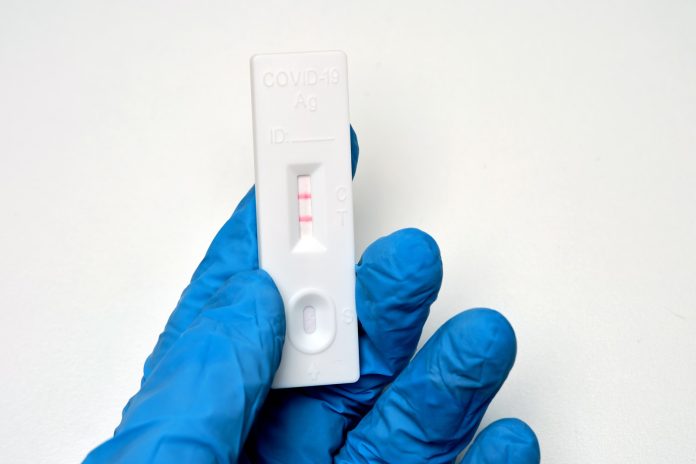Nearly two years after Covid-19 first reached the US, Dr. Anthony Fauci indicated what many medical professionals have long known, and policymakers have desperately tried to avoid: Covid-19 is likely endemic.
Speaking at the World Economic Forum, Dr. Facui noted, “if you look at the history of infectious diseases, we’ve only eradicated one infectious disease in man, and that’s smallpox. That’s not going to happen with this virus.” Many others agree. Professor of global health and epidemiologist at the University of Washington Dr. Ali Mokdad similarly remarked, “the pandemic phase of the virus is over in our opinion… we are moving into an endemic phase.”
RNA viruses, including Covid-19 and its variants, frequently mutate to survive while becoming less harmful. Covid-19 continues to mutate, most recently into the Omicron BA.2 subvariant. Predictably, death rates continue to decrease nationally, although new cases are rising. Infectious disease expert at the Children’s Hospital of Philadelphia, Dr. Paul Offit is optimistic, “we’re just going to see a lot of mild illness and not see a dramatic increase in hospitalizations.”
The virus transitioning from a global pandemic to a milder endemic also provokes many questions about the future of public health and health policies enacted to address Covid-19. One of the most important questions is what will happen to emergency use authorization (EUA) after the health crisis ends.
EUA authority was initially granted to the Food and Drug Administration with the Bioshield Act of 2004 to quickly approve treatments needed to address potential biological warfare tactics as the War on Terror expanded. EUA power was seldom used until the Covid-19 pandemic when it became one of the greatest assets in combatting the virus.
Since early 2020, liberal use of EUAs has brought us two Covid-19 vaccines, six Covid-19 treatments, and countless Covid-19 tests. Most of these tests and treatments continue to help patients receive diagnoses as well as battle and prevent illness. Some have since received full FDA approval– shaving years and millions of dollars off what is generally required for medical goods to reach the market.
But EUAs only extend until national emergencies end, and the pandemic’s days are numbered. Afterward, products authorized during a crisis need to receive full FDA approval to remain on the market- unless given special consideration by the Department of Health and Human Services. Given the tremendous success of EUAs over the past two years, we might argue the pandemic has shown the normal approval process is a burden to innovation that provides little added assurance of quality or safety.
As I noted in articles published in Independent Review and Southern Economic Journal, EUA dramatically increased testing availability and variety during the pandemic while also bringing us urgently needed Covid-19 treatments and vaccinations. Expanding EUAs would grant easier pathways to address other severe conditions. For example, cancer and heart disease dwarfed the death total of Covid-19 even in 2020 (other illnesses were close behind). Why not consider these emergencies, and truncate the process for promising treatments to reach patients?
However, as long as determining what is “safe,” “effective,” or what constitutes an “emergency” is determined politically, there is the potential for regulatory capture. Termed by Nobel Prize-winning Economic George Stigler, regulatory capture is when select industries collaborate with state entities to gain political favors—often to the detriment of their competition and consumers.
Some early evidence of regulatory capture already exists. Knowing Covid-19 is declining, Pfizer and Moderna have continually pressured the FDA to authorize vaccine doses as boosters (even fourth doses) and for children’s use. Other vaccines that did not use mRNA technologies favored by the state-industry collaboration under Operation Warp Speed have been excluded from EUA in the US. Despite being commonly and successfully used in other nations with a similar risk of side effects.
Avenues to continue EUAs provide opportunities for both cronyism and deregulation. Our strongest assurance it will help deregulate is remembering the tremendous positive impact deregulation has played in combatting Covid-19. As the pandemic ends, there are plenty of frustrating examples of what went wrong. Let’s hope deregulation is remembered as an example of what went right.
